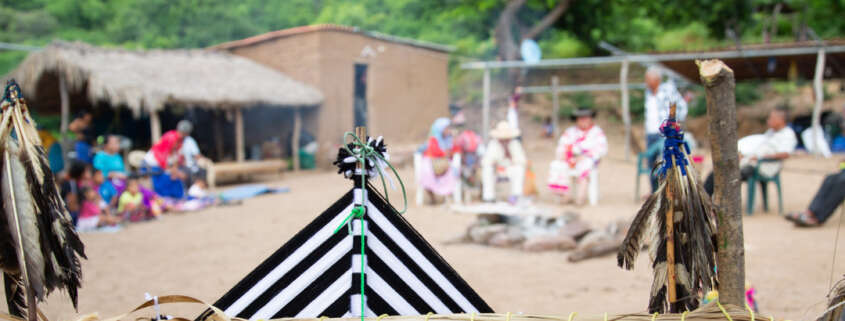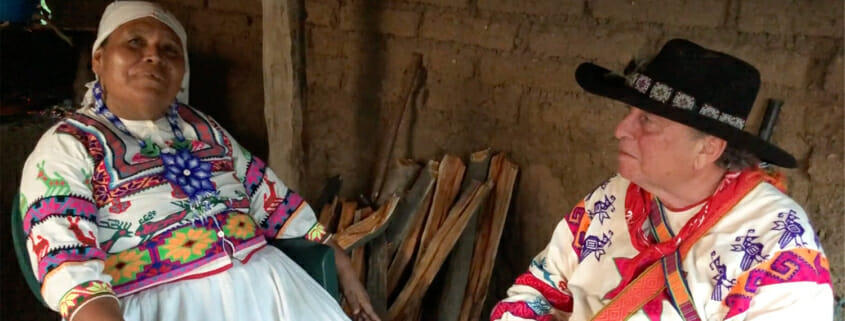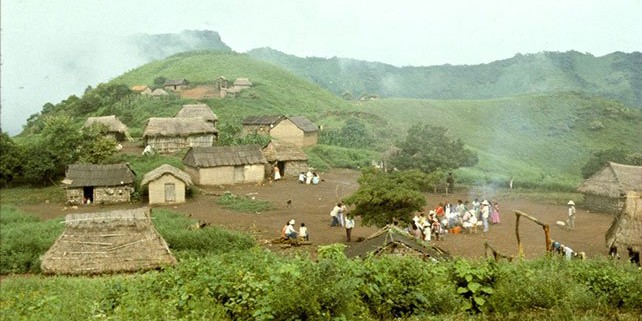Autumn Equinox and the Harvest Ceremony
Happy Equinox! May we manifest the harmony within ourselves to help bring balance to the world around us.
We returned from the Drum and Harvest Ceremony in Mexico earlier this week. The time in the Sierra Madre was beautiful and intense as always. Don Jacinto, the leading shaman in the ceremony, exuded kupuri (life force) as he chanted for hours on end. The intricate songs summoned the spirits from the four directions and the sky realm to bless the people, along with the harvest of corn and squash. The children shook their rattles as mothers cradled the youngest babies.
Drum and Harvest Ceremony Altar
One aspect of the ceremony is to help take the spirits of the children to places of power that they are still too young to visit. While their bodies may not yet be able to make the journey, their spirits fly through the Nierika (spiritual doorway) to connect with the dreaming gods and goddesses of these sacred places. In this way, they are invigorated with the energy of the diverse landscape so that they may live a long and healthy life.
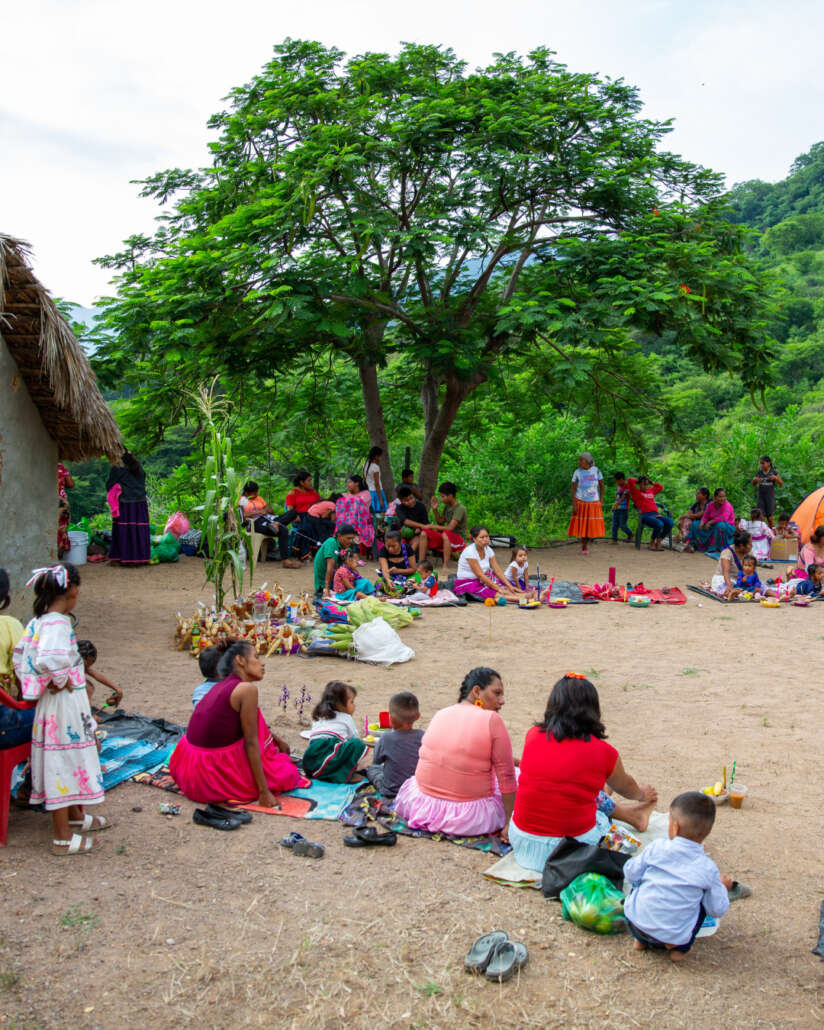
Huichol women and children gather for the harvest ceremony.
After starting at sunset last Friday, Don Jacinto chanted late into the night, well past 1:00 a.m. Accompanied by the sound of the drum, the ancient songs echoed up into the mountains. Even the crickets seemed to be in awe, silently listening in a state of trance. After a few hours of rest, corn stalks were cut from the fields, and the altar was built as the sun prepared to make its way over the horizon.
The rattles and God’s Eyes from each child were brought out of the temple hut, and the altar was filled with fresh fruits, corn, squash, and tamales. Nawa (a fermented corn drink) prepared by various families was poured into jugs and gourds. As the rays of sunshine flowed over the distant peaks, the drum and chants commenced once more and continued with only brief breaks until early evening.
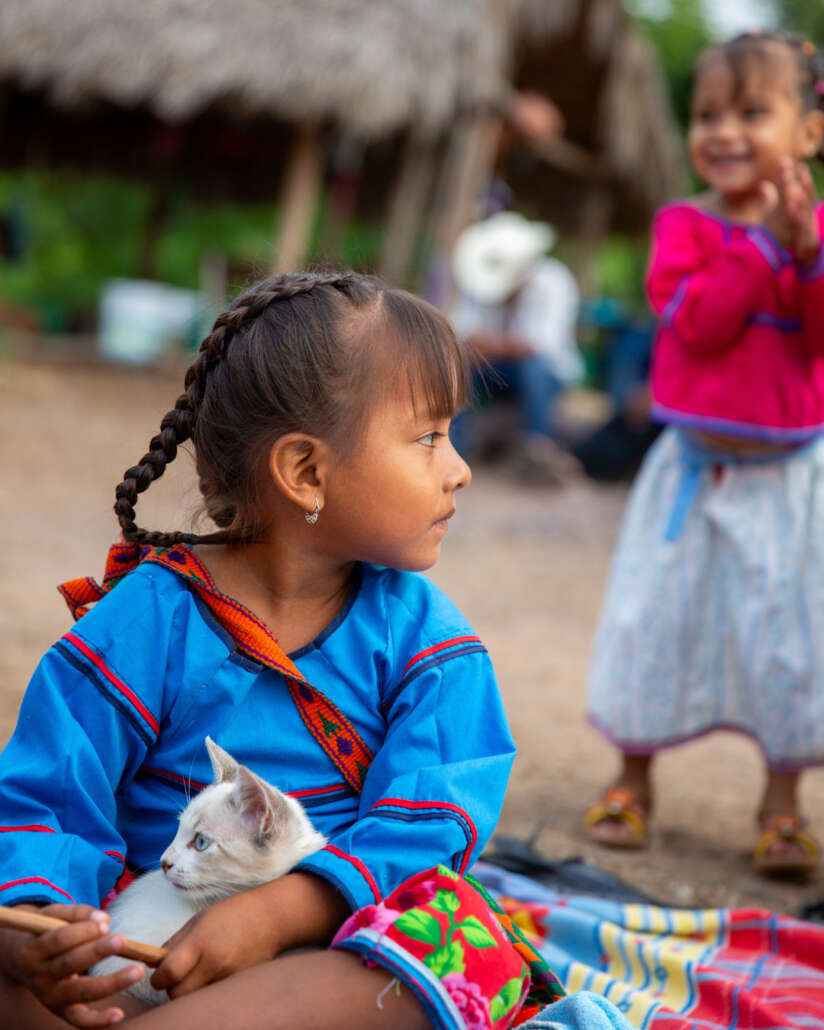
Young Huichol girls participate in the ceremony
As soon as the ceremony finished for the day, lightning strikes danced atop the mountains all around us. It began to rain as thunder grew closer. Eventually, a heavy downpour lulled us to sleep and kept the village dreaming until around 3 or 4 a.m. when the elders began to gather around the fire once again.
On Sunday morning, the fresh corn and squash were cooked on the fire, and then everyone lined up to take a piece of both. Before feasting, each person placed their small piece of the harvest onto the drum to be blessed by the shaman and then offered a few kernels of corn and a pinch of squash to the fire. The taste of Huichol corn is far heartier than what you find in most stores or farm stands around the world. Each bite contains an earthiness and fullness that is hard to describe. This ancient staple represents the healing of the body for the Huichol, and indeed, you can taste the difference in the food grown on the land that has been stewarded for thousands of years by such a grounded culture.
Before dispersing back to our nearby huts and distant villages, everyone gathered around the ceremonial fire to offer one last prayer. Together, the entire village called out to Tatewari (Grandfather Fire), to give thanks for a successful ceremony and for all those near and far who supported this sacred gathering.
Thank you for being a part of the ceremony from afar. Even if all you did was read this message, you are connected within the concentric circles of community.
Hopefully the positive effects of the ceremony will continue to ripple out into the world.
We wish you a bountiful and balanced autumn season!
With Love & Gratitude,
Brant Secunda + Nico Secunda
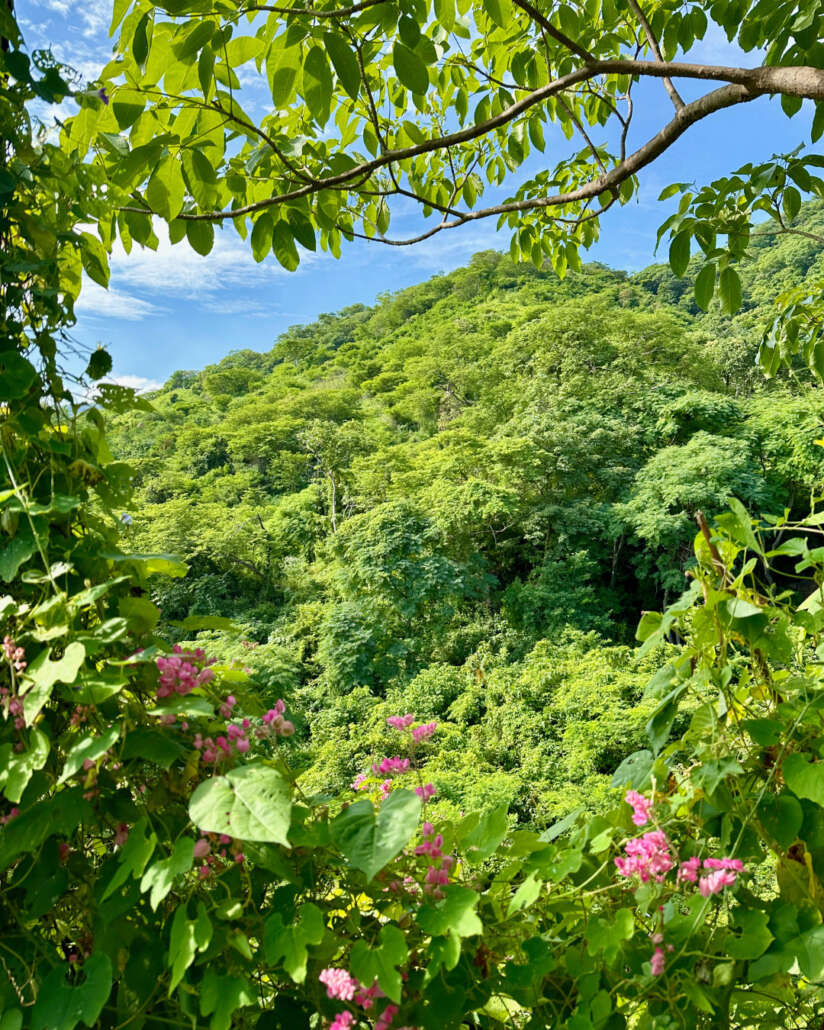
Autumn in the Huichol Sierra

